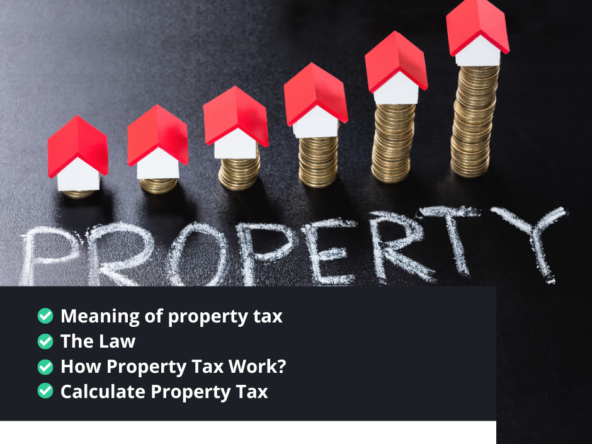How to get rid of bad tenants in Uganda
Too often landlords in Uganda make the mistake of accepting unsuitable tenants in a moment of desperation. Of course, losing one or two month’s rent isn’t ideal for cash flow, but a bad tenant can prove far more costly, creating serious headaches, causing expensive damage, or, in the worst cases, a ‘professional tenant’ might avoid paying up to 6 month’s worth of rent.To avoid dealing with bad tenants, the best option is to avoid the situation in the first place.
What is a professional tenant?
A professional tenant or professional renter is not just a poor fit for your property. A professional tenant is someone who understands legal loopholes and technicalities in order to game the system to their advantage. They know how to withhold rent due to repairs, they understand how to drag an eviction process out and how to get it expunged from their record. They usually have a sporadic rental history from jumping from place to place in an effort to avoid paying full rent.
A professional tenant is a con artist who takes advantage of loopholes in the residential tenancy act to avoid paying rent. They have in-depth knowledge of the eviction process and stave off their eviction by getting involved in legal proceedings, thus, delaying their move and maintaining an (unpaid) roof over their heads for as long as possible.
To avoid ever dealing with a professional tenant, make sure you check off every step of your tenant screening process. They often appear as the perfect candidate, presenting themselves well and turning on the charm, in hopes that the landlord will let their guard down and skip on doing their due diligence. Do background checks and call multiple references.
As a landlord, you are within your rights to ask for photo identification, so be sure to ask for government issued ID. A tenant, prior to signing to a tenancy agreement, is required to identify himself or herself using government issued ID, which is then cross-referenced to their corroborating information and verifying the tenant.
It’s not always easy to spot a professional tenant at the outset. Many of these tenants are excellent at hiding their past misdeeds.
Here are a few red flags to note during the application process in order to spot professional tenants:
- The applicant has a history of evictions, litigation (especially with landlords), or delinquency with prior landlords.
- They know government and local landlord-tenant law inside and out and they aren’t afraid to show it off. Some professional tenants will also show off their backgrounds in real estate, contracting, or law as well.
- Their financial history includes multiple bankruptcies, judgments, collections, or poor credit.
- They have gaps in their recent rental history with no plausible or verifiable explanation.
- The references they offer for prior landlords are non-existent, incomplete, or fake.
Avoiding Professional Renters
It is far easier to turn down a professional tenant in the application process than to evict one once a lease has been signed.
Create a solid and thorough screening process to minimize your risk of professional tenants. Include steps like:
- Call every past landlord reference and talk to them. You’ll learn a great deal about applicants – and you’ll also learn quickly which references have been faked.
- Check and verify employment information, bankruptcy information, and court records.
When can you evict tenants?
Professional tenants aren’t the only kind of bad tenants out there. Other garden variety types, wreak damage on your property or disturb your neighbors. Regardless, you do not want any of these types as your tenant.
If you find yourself in the unfortunate position of having to deal with a bad tenant here are the steps you will need to follow to have them evicted. And, remember, vigilante evictions are illegal so don’t change locks, turn off utilities, or bar access to the property by other means or you risk going to jail.
When evicting a professional tenant you want to make sure you’re meticulous in documenting and following the right steps.
This eviction guide will walk you through the steps to follow. Be sure you’re following your government laws because if you have one slip up you might be dealing with this tenant for an extended period.
Eviction process
The Time For a Formal Notice: If you have a valid reason for eviction, it’s time to consider whether or not you want to formally file for eviction. Not every case of tenant problems has to progress to the eviction level, but it might be time for you to send an official eviction notice.
Try To Talk It Out: Most landlords will try to have a calm but firm conversation with their tenants before sending an eviction notice. By trying to talk it out, both parties have a chance to voice their situation and attempt to come to an agreement that does not involve the complexities of the court system and any associated costs, which is usually preferable to all parties.
Learn The Laws & Leases Involved: The very first thing that you need to do is research. You’re not going to be an expert in a few hours, but you will be better off than you were. In fact, you’re already on the right path by reading this guide!
There are many different laws and ordinances that you will be faced with while working through the eviction process. From renters’ rights to landlord’s rights to lease agreement requirements, everything will be examined during the eviction process, so it’s important that you become familiar with it now.
Valid Eviction Reasons: There may be times when a tenant is driving you crazy. Annoying you, however, is not grounds for eviction.
When you’re considering filing for eviction, you need to be sure that your tenant has done something to merit an eviction notice. In most areas, the following will suffice:
- Not paying rent
- Regularly paying rent late
- Significant property damage
- Violating the rental agreement
- Creating hazardous or dangerous health conditions
- Breaking local ordinances or laws
If you suspect that your tenant is doing any of these things, document your findings immediately. Even if you do not decide to file for eviction immediately, keep these documents. They will be essential should you decide to go to court.
When can you evict tenants?
Missed Rent Payment (10-day notice)
Regardless of whether they are short the full amount or shs 1, you can issue a 10-day Eviction Notice. If tenant doesn’t challenge within 5 days of receiving notice, they will be expected to move out by the 10th day.
This is the quickest way to evict a tenant. In some cases, it can be done in as little as ten days. Unlike other methods, the landlord does not require a participatory hearing if an appropriate non-payment of rent application is filed. So if you complete the paperwork correctly, the bad tenant could be gone in as little as 14 days.
Other Causes (30-day notice)
This is the most commonly issued notice when a tenant has unreasonably disturbed landlord or other occupants, repeatedly made late payments (at least 3 times), caused serious damage to unit or building, conducted illegal activities on premises, housed too many occupants etc.
Evicting the Tenant
To actually evict the tenant and their belongings, you will need to follow the strict rules below.
It’s Time To File
If talking with your tenant doesn’t have any effect, or they outright refuse your attempts at compromise, it is time to file an official eviction notice.
Despite being given the chance, not all tenants will feel that they have to leave, so a court-backed eviction will be necessary to regain control of your property.
Send Out the Notice of Eviction
You must send out a formal notice of eviction that details the conditions of eviction, the dates, and the reasons. If there is anything that the tenant can do to avoid eviction, this document must also give that information to the tenant as well as a deadline to complete your requests by.
Generally speaking, the notice must include:
- Deadline for any required changes (i.e., pay rent by X, clean yard by X, mow grass by X)
- Amount of money owed, including fees
- How many days the notice must be posted before you may file for an eviction hearing
File For Eviction
If your tenant does not make the required changes in the allotted period, it is time for you to file for eviction.
Go to the local courts and ask for the paperwork necessary to file for eviction. Bring with you proof (via the return receipt requested) that you gave the tenant a formal notice of eviction. If the paperwork is correct, the court clerk will schedule a hearing date.
The court will handle sending a summons to the tenant, so you do not have to do this. Instead, gather up your documents and prepare for court.
The Hearing
Before the hearing, you need to prepare the documents that you have been keeping that show the tenant is not holding up their end of their lease agreement. Without evidence, the court will have no way of knowing which side to believe.
Gather up as much of the following information as possible before the hearing:
- Lease agreement
- Records of payments (late, on time, missed, etc.)
- Bounced checks or written notices of lateness
- Phone and email records, if applicable
- Copy of eviction notice given to tenant
- Proof that the tenant received said notice (via receipt from post office or tenant signature)
Throughout the hearing, be honest and clear about everything that has happened. You do not need to lie to prove anything, as the documentation that you gathered says it all. As the court reviews your documents, they will decide if the tenant should get more time to fix the issue or if your eviction filing will be approved.
Eviction
If the eviction filing passes, it’s time for the actual eviction to occur.
So you may now be wondering: What are the steps to evict a tenant once the court says “yes?”
The court will set a date by which the tenant must move out. While this sounds simple, not every tenant will leave by that date.
If the tenant does not leave, take the court records to the community police’s office. Because you have a legal judgment against them, the police can step in to repossess the property. Do not make any attempt to remove the tenant yourself.
Role of the community police: The police do not have the authority to evict tenants on their own. However, a court-approved bailiff may ask them to attend an eviction to keep the peace while a tenant is being removed
Collecting What You’re Owed
Now that the tenant has been evicted, you may be wondering what to do about the money that you have not been paid.
Security Deposit
If the amount of money owed by them in rent or property damages can be covered by the security deposit, you can keep that. If, however, the tenant does not owe anything and did not leave behind any damages, you must still return the deposit despite the eviction.
Garnishment
If the tenant refuses to pay you the money that the court says that you are owned, you can use the judgment that you received to go to their employer and garnish their wages. This means that their job would pay you before it pays them, ensuring that you get your money back.
THE SINGLE MOST IMPORTANT FACTOR to consider when renting out a property. Do yourself a favor and spend the extra time conducting thorough background checks and keep a paper trail of communications (easily managed and maintained through property management). This information will be key to evoking a successful eviction should you be faced with this horrible circumstance.
Check out our post on How to Pick the Right Tenant





